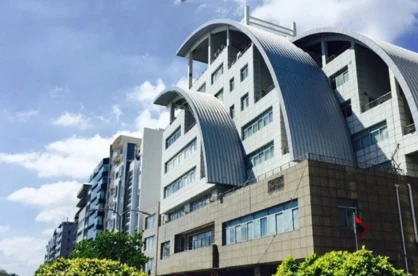With each passing year, one
thing that the Maldivian citizens hope for is a better healthcare system, which
caters to Maldivians from all corners of the nation. The existing system, while
improved from what it was ten years ago, still grapples with major challenges
that need to be addressed as it often impacts the well-being of the citizens.
There are two predominant issues that loom large when it comes to the
healthcare system: the exorbitant costs associated with private hospitals and
the protracted waiting times in public, creating a healthcare conundrum for the
people.
With this, the burden of
exorbitant medical bills even when it comes to an annual check up can lead to
financial distress, forcing individuals to make difficult choices between their
health and financial stability. Even when it comes to running the most basic
check up the cost and the wait time for medical attention often create a
culture of healthcare issues going unnoticed for years. The system's
inefficiency in managing the demand for healthcare services has left many
patients in limbo, grappling with deteriorating health conditions.
However, amidst these
challenges, a glimmer of hope emerges through the government's national
insurance scheme Aasandha. Recently, the National Social Protection Agency
(NSPA) unveiled a policy aimed at reshaping the landscape of healthcare
accessibility in the Maldives. Titled 'Policy for providing additional services
under Husnuvaa Aasandha,' this framework outlines a roadmap for three crucial
healthcare services.
Firstly, it introduces
biannual medical check-ups, a prospect that holds promise for preventative
healthcare. These check-ups, tailored to specific age groups, enable
individuals to undergo fundamental screenings twice a year. When coupled with a
doctor's consultation, these annual check-ups open avenues for various tests,
contributing to the early detection of health issues. This is a major step
towards detecting healthcare issues beforehand, a culture that has yet not been
fostered in the Maldives due to the problems within the healthcare system.
Additionally, the Aasandha
scheme extends coverage for hospital transfers abroad, easing the financial
burden on those seeking specialized treatment beyond the country's borders.
With this, the Aasandha initiative will include covering expenses for patients
seeking treatment abroad upon application approval. The policy details the
application process, ensuring that patients can access this service with proper
approvals. With this, people with medical conditions that cannot be treated in
the Maldives would have an easier time getting access to healthcare facilities
abroad without having to take up such severe financial burdens.
As the hospitals in the
Maldives are still developing, for illnesses such as cancer, which has become
concerningly common in the Maldives, patients are often referred to travel
abroad. While the healthcare in countries such as India is notably better for
such patients, it is often the cost of these medical trips that adds an
additional layer of distress to the families. With this extension, the burdens
of getting better treatment abroad would be lessened, as this opens doors for
patients who struggle financially as well.
Crucially, the Aasandha
scheme recognizes the unique healthcare needs of women, encompassing treatment
for conditions such as endometriosis and PCOS. By providing accessibility
through registered centres, this initiative seeks to address specific health concerns
that often go overlooked.
Although these check-ups
primarily involve fundamental screenings, further tests are warranted only
based on specific results, this is a major step towards improving the
healthcare sector in the Maldives making it more affordable and accessible for
patients.
While the Maldivian healthcare
system surely faces its own hurdles, the added extensions in the Aasandha
initiative signal a positive stride toward enhancing accessibility and
affordability. The policy's commitment to preventative care, overseas treatment
options, and addressing women's health concerns heralds a new era in healthcare
delivery.







